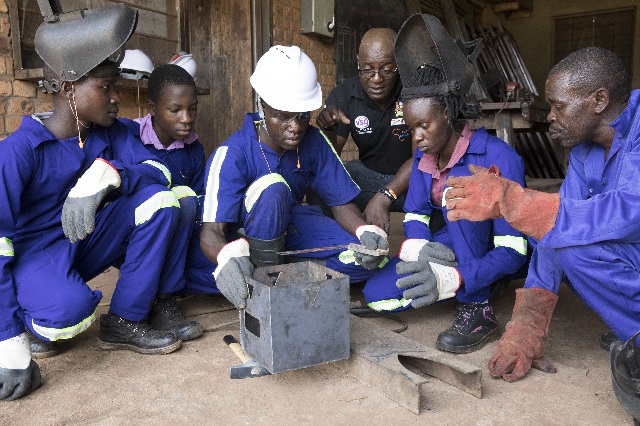
Kampala, Uganda | THE INDEPENDENT | The government is set to restructure and merge a number of institutions and agencies involved in skills development as part of the implementation of the new Technical, Vocational Education and Training-TVET policy.
The National Council for Higher Education-NCHE, a body which was created by the University and other Tertiary Act in 2006, is one of the institutions that will be affected by the changes as its role in the vocational training sector will be taken over by a TVET council.
The new body will now take full charge on the task of establishing standards, qualifications, registration, and accreditation systems of institutions, programmes, and trainers for all skills development programs related to education.
The changes will also affect BTVET national assessment bodies, upon the creation of a TVET curriculum and assessment board which will take on functions of the Directorate of Industrial Training-DIT and Uganda Business and Technical Examinations Board-UBTEB. The other is the Uganda Nurses and Midwives Examination Board-UNMEB and Uganda Allied Health Examinations Board-UAHEB which will be merged into one body, the Health Professionals Assessment Board.
Hajat Safina Musene, the Commissioner Business Technical, Vocational Education and Training-BTVET, says several steps have already been taken to implement the move which is intended at harmonizing institutional frameworks. She adds that several proposals are now awaiting the top management approvals while others are still in the early preparation stages.
She was speaking to Uganda Radio Network during a side interview held at Esella Hotel in Wakiso district, at a function where the Ministry of Education was launching the TVET policy implementing team.
Musene adds that the BTVET institutions will also be categorized into levels starting will level one; skills development centres which will focus on developing skills that are special in given areas. For instance, centres established near fishing communities will be training and teaching skills needed in that area like boat making.
After Skills Development Centres (SDC), there will be Vocational Training Institutes (VTIs), Technical including Nursing, Midwifery and Allied Colleges (TCs), and National Polytechnics (NPs) which will also be the centres of excellence linking to the National Technical University (NTU).
Although the cabinet has already approved the TVET policy to effect the new changes, the Ministry of Education and Sports will have to review the current legal regimes relating to BTVET and technical education.
Loy Abaine Muhwezi, the assistant Commissioner for Technical Education, who has been at the forefront notes that they are already in preparation to draft a new TVET bill that will enable them to implement all the proposed changes.
“We have already drafted the principles and submitted them to the cabinet. If approved, we will embark on drafting a bill. We are sure that this is going to be a game-changer as it will see the mainstreaming all cross-cutting into all aspects of TVET,” says Muhwezi.
The Ministry of Education has set up a 20-member team which will among other duties oversee the implementation of the said restructuring and other aspects of the first-ever TVET policy which seeks to create an employer-led system that is flexible to the changing market demands.
*****
URN
 The Independent Uganda: You get the Truth we Pay the Price
The Independent Uganda: You get the Truth we Pay the Price


